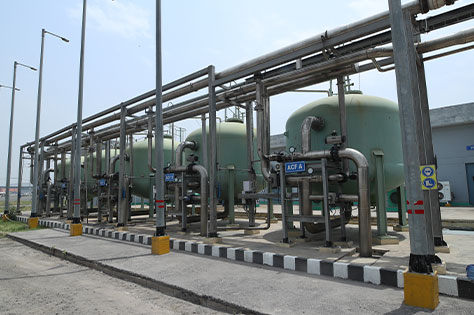
In a world where rapid urbanization, climate change and population growth are amplifying the challenges of providing clean water and proper sanitation, the importance of Public Health Engineering (PHE) cannot be emphasized enough. As of today, many people lack access to safe drinking water and adequate sanitation services. This dire situation underscores the pivotal role that PHE plays in creating sustainable solutions for water supply, wastewater management and hygiene practices.
Throughout history, inadequate water supply and unsanitary conditions posed substantial threats to public health. Waterborne diseases were rampant and limited wastewater management further deteriorated living conditions. The advent of Public Health Engineering marked a significant turning point. Born out of the need to address these pressing challenges, PHE became the bridge between engineering, science and public health.
PHE is instrumental in designing, implementing and maintaining water supply systems that provide safe and clean drinking water to communities and businesses. This involves assessing water sources, developing treatment methods and establishing distribution networks to ensure that people have access to reliable sources of potable water. By ensuring the availability of clean water, PHE directly contributes to improved public health by preventing waterborne diseases and promoting overall well-being.
Effective wastewater management is a cornerstone of PHE's role. By designing and implementing wastewater treatment and disposal systems, PHE prevents the contamination of water bodies and soil. Proper management of wastewater minimizes the risk of pollution-related health issues and environmental degradation. This aspect of PHE is crucial for maintaining the health of ecosystems and ensuring the sustainable use of natural resources.
PHE professionals are responsible for developing sanitation facilities that improve community hygiene and living conditions. Adequate sanitation facilities, such as toilets and waste disposal systems, are essential for preventing the spread of diseases. PHE experts consider cultural, social and economic factors to design sanitation solutions that cater to the specific needs of different communities.
One of the primary roles of PHE is to prevent the outbreak and transmission of waterborne diseases. By ensuring access to clean water, effective wastewater treatment and proper sanitation, PHE reduces the risk of illnesses caused by contaminated water and poor hygiene practices. This proactive approach significantly contributes to reducing the burden on healthcare systems and improving overall public health.
PHE professionals are integral to disaster management efforts, particularly during natural disasters or emergencies that disrupt water and sanitation systems. They play a critical role in restoring essential services, preventing disease outbreaks and ensuring the availability of safe drinking water in crisis situations.
Public Health Engineering continually evolves through research and innovation. PHE experts explore new technologies, materials and methods to enhance the efficiency, sustainability and safety of water supply and sanitation systems. These advancements contribute to creating more resilient and adaptable infrastructure in the face of changing environmental and social conditions.
PHE professionals often engage in advocacy and education to promote public awareness about the importance of clean water, proper sanitation and hygiene. By raising awareness and fostering behavioral changes, they empower communities to take ownership of their health and well-being.
GEMS engineers have established themselves as experts in the field of Public Health Engineering. Their proficiency extends to several key areas
Comprehensive Design Capabilities: GEMS engineers leverage advanced technologies like 2D and 3D CAD designs to create innovative and efficient water and wastewater systems. These designs are tailored to meet specific client requirements, ensuring optimal performance and resource utilization.
Adaptation and Customization: Each project undertaken by GEMS engineers is approached with a commitment to addressing the unique challenges presented. Whether it's new construction, building re-equipment, repair, or reconstruction, GEMS engineers adapt their designs to suit the context and purpose of the project.
Documentation and Compliance: GEMS engineers are meticulous in preparing PHE design documentation. This documentation not only guides the construction process but also ensures compliance with regulations and standards, guaranteeing the safety and efficacy of the systems they design.
With prowess in advanced hydro-pneumatic pumps, expertise in large-scale complex management and a proven track record in potable and flush water systems, we stand ready to revolutionize your PHE management needs.
If you need any PHE services, get in touch with us at +91 97171 99753, or drop us a mail at Rohitkumar.Singh@gmrgroup.in.